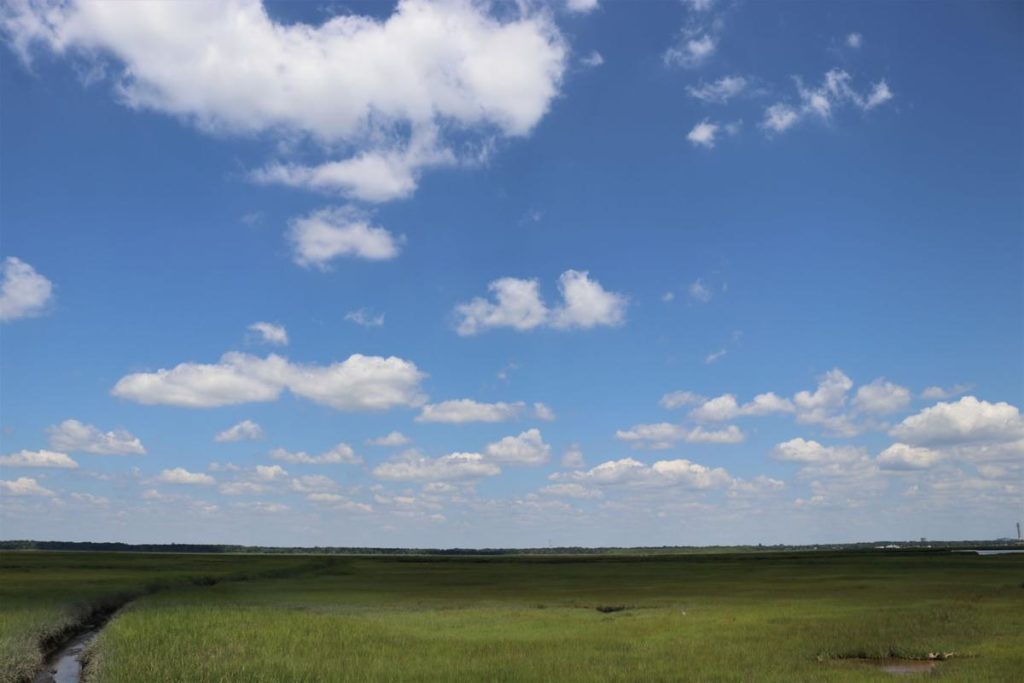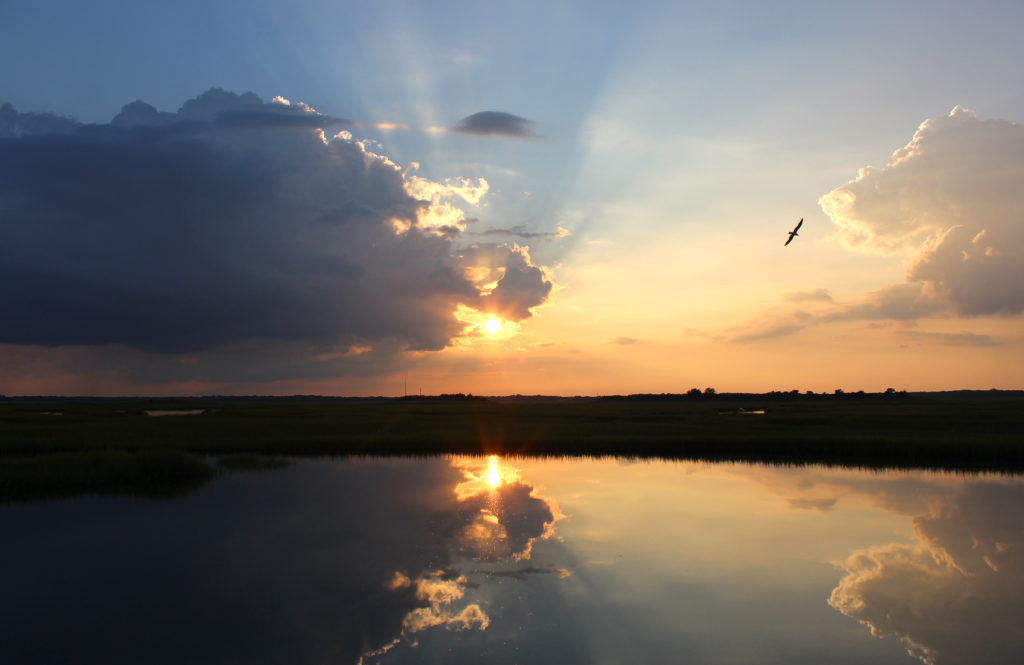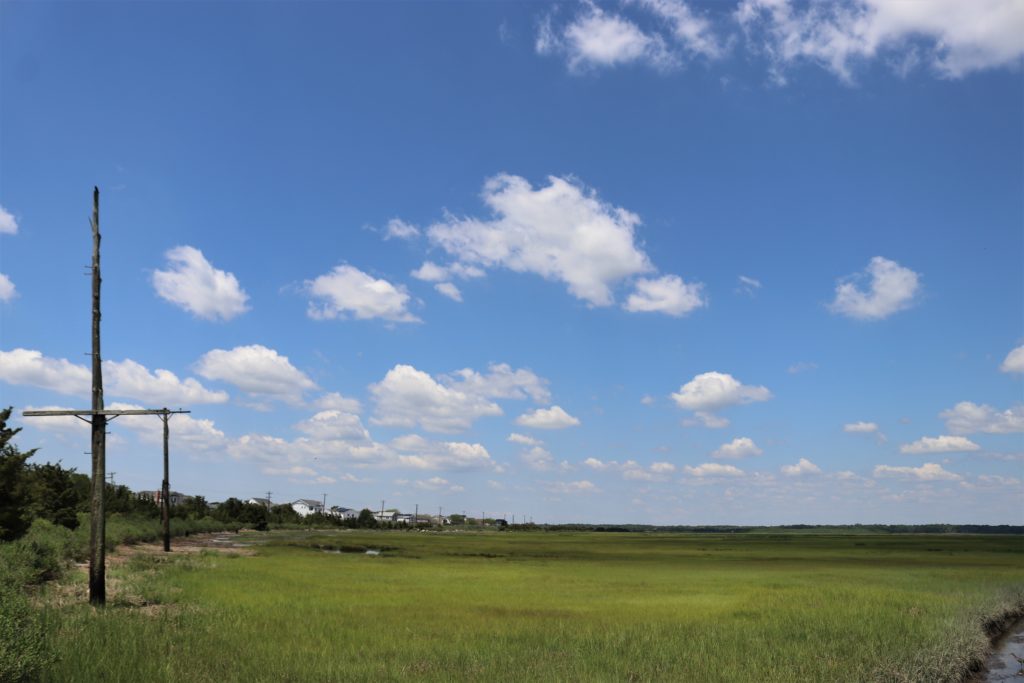
New federal rules took effect June 22, defining what falls under the protection of the federal Clean Water Act.
Officials with the Trump administration describe it as a long-overdue clarification that will protect navigable waters while driving economic growth. Others describe it as a rollback.
“The rollbacks of clean water protections essentially give polluters a free pass.”
Sandra Meola, Director, Coalition for the Delaware River Watershed
At issue is the definition of the waters of the U.S., which are protected under the Clean Water Act and have been for decades. Sandra Meola, director, Coalition for the Delaware River Watershed, said they are sometimes referred to as “WOTUS.”
“The new redefinition of WOTUS does severely weaken the Clean Water Act’s intention,” she said, in a recent interview, “so we are very concerned.”
Meola described the current level of water protection as at its lowest level in 50 years. The change will impact millions of miles of streams and more than half of America’s wetlands, she said.
“The rollbacks of clean water protections essentially give polluters a free pass,” she said.
Other environmental groups have also spoken out. The organization Surfrider argues that President Trump’s executive order puts millions of acres of wetlands at risk, stating that 80% of Americans support clean water rules.
“The Trump administration continues to be more interested in handouts for polluting corporations than protecting our drinking water,” reads a prepared statement issued, in June, from the Sierra Club’s Joan Walker of that group’s Beyond Dirty Fuels campaign. “This erosion of our fundamental clean water protections drastically limits states’ ability to protect their water at a time when access to clean water is more important than ever. It’s a shame that we can’t trust the polluting corporations behind these dirty, dangerous projects to protect our water, but it’s tragic that we can’t trust our own president to do it.”
“After decades of landowners relying on expensive attorneys to determine what water on their land may or may not fall under federal regulations, our new Navigable Waters Protection Rule strikes the proper balance between Washington and the states in managing land and water resources while protecting our nation’s navigable waters, and it does so within the authority Congress provided.”
Andrew Wheeler, administrator, U.S. Environmental Protection Agency (EPA)
In January, Andrew Wheeler, administrator, U.S. Environmental Protection Agency (EPA), announced the change in Las Vegas, Nevada, at an event for the National Association of Home Builders. He argued that the change will bring clarity to the system.
In a statement posted to the EPA’s website, the agency contends that the previous rules amounted to federal overreach and that farmers and industry leaders faced confusion over what was covered by the federal rules. He was joined by representatives of the U.S. Army Corps of Engineers.
“EPA and the Army [Corps of Engineers] are providing much needed regulatory certainty and predictability for American farmers, landowners, and businesses to support the economy and accelerate critical infrastructure projects,” said Wheeler. “After decades of landowners relying on expensive attorneys to determine what water on their land may or may not fall under federal regulations, our new Navigable Waters Protection Rule strikes the proper balance between Washington and the states in managing land and water resources while protecting our nation’s navigable waters, and it does so within the authority Congress provided.”
The reach of the federal rules was expanded under the Obama administration. That expansion included some streams that only contained water at certain times of the year, if that water flowed into a navigable waterway, even if the stream or tributary dried up each summer.
“For the first time, EPA and the Army [Corps of Engineers] are recognizing the difference between federally protected wetlands and state-protected wetlands. It adheres to the statutory limits of the agencies’ authority,” reads an EPA statement. “It also ensures that America’s water protections – among the best in the world – remain strong, while giving our states and tribes the certainty to manage their waters in ways that best protect their natural resources and local economies.”

The revised definition identifies four categories of federally protected waters:
- Territorial seas and traditional navigable waters, like the Atlantic Ocean or the Delaware River
- Perennial and intermittent tributaries
- Certain lakes, ponds, and impoundments
- Wetlands that are adjacent to jurisdictional waters
Meola and other environmental advocates argue that the other tributaries have an impact on the entire watershed. The small streams feed into the larger water system. If they are clean, they provide nurseries for fish and other wildlife and help keep wetlands healthy.
“I have some good news,” Meola said. The Clean Water for All Act, a bill in the U.S. House of Representatives, would block the implementation of the new rules.
“The bill would require the EPA and the Army Corps of Engineers to essentially start over, develop a new regulation to protect those waterways that have gaps now,” she said, adding that it would require future decisions be based on sound science. It would also allow for community input, saying that would especially apply to vulnerable communities the regulations are intended to protect.
While she said the bill is gaining steam in the house, currently led by Democrats, it may have little chance in the Republican-controlled Senate, and even less chance of a signature in the Oval Office, she acknowledged.
“It is most likely dead on arrival until either the Senate or the White House flips,” she said.
Her organization is pushing for support in the House.
“There’s a lot at stake within the Delaware River watershed. More than 13 million people rely on clean drinking water. Over 200 species of vulnerable wildlife rely on clean habitat throughout the watershed,” she said.
Local U.S. Rep. Jeff Van Drew (R-2nd), who strengthened ties to Trump late last year, as he changed political parties, is not one of the co-sponsors, although he supported clean water initiatives in the past. A spokesman for his office was not available for comment by press time.

For Cape May County, the impact of the change may be minimal.
“The good news: they still have state protections,” said Eileen Murphy, vice president for government relations at New Jersey Audubon. New Jersey has some of the strongest clean water protections in the nation, she said, and those protections remain in place regardless of changes to federal rules.
“However, it’s important in the Delaware because it has multiple states. Just because New Jersey has more stringent protections for streams and tributaries and wetlands than the federal government, other states don’t enjoy those same protections,” she said.
“It has never been more important to protect our environment, which has a direct link to the health of our residents; but EPA is doing just the opposite, rolling back critical rules that protect our waters. This rule is yet another example of EPA disregarding the law and placing industry over our natural resources, and we are committed to fighting it in court.”
N.J. Attorney General Gurbir Grewal
An impact anywhere along the Delaware River, and into the bay, could eventually make its way to Cape May County.
New Jersey has gone farther. In May, state Attorney General Gurbir Grewal and state Department of Environmental Protection Commissioner Catherine McCabe announced that New Jersey would file a lawsuit to block the changes to EPA rules.
It is part of a multi-state action aimed at blocking the new rules.
“It has never been more important to protect our environment, which has a direct link to the health of our residents,” said Grewal, in the announcement, “but EPA is doing just the opposite, rolling back critical rules that protect our waters. This rule is yet another example of EPA disregarding the law and placing industry over our natural resources, and we are committed to fighting it in court.”

This story was produced in collaboration with CivicStory and the New Jersey Sustainability Reporting Hub project. It was originally reported by Bill Barlow for the Cape May County Herald, and may be re-distributed through the Creative Commons License, with attribution.
